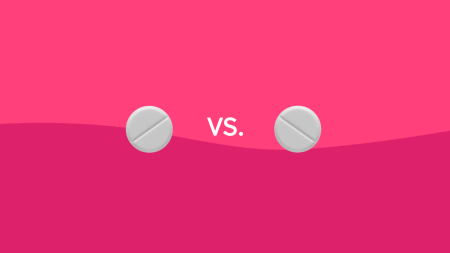What Is the Strongest Weight Loss Prescription Pill?
Wondering what’s the strongest weight loss prescription pill? If you came here expecting a one-size-fits-all answer, we have bad news. The term “strength” is extremely subjective when discussing weight loss medications.
Many pills and treatments are available for weight management. And since body types and individual needs vary, you have to find what works best for you while heeding the advice of your healthcare provider.
We’ll go over the top prescription weight loss pills below, including how they work, factors to consider and how to boost their effectiveness as part of your weight loss plan.
Top Prescription Weight Loss Pill
Anti-obesity medications (AOMs) date back to the 1940s — well before modern regulations from the FDA (U.S. Food and Drug Administration) (FDA) were in place. As far as weight loss pills that actually work, they’ve come a long way.
How many options are there when it comes to doctor-prescribed weight loss pills?
Below are some of the most popular brand names and most effective prescription weight loss pills currently available:
Orlistat (Xenical®, Alli®). Orlistat works by preventing your body from absorbing dietary fats. It inhibits lipase, an enzyme in the intestine that breaks down fat molecules. This leads to reduced calorie absorption from fat intake. Xenical is the prescription-strength version, while Alli is available over the counter.
Phentermine (Adipex-P®, Lomaira®). Phentermine is a stimulant that suppresses appetite by affecting the central nervous system. It’s typically prescribed for short-term use (a few weeks) in conjunction with eating healthy and exercising for chronic weight management.
Naltrexone-bupropion (Contrave®). This medication combines two drugs: bupropion (an antidepressant that may suppress appetite) and naltrexone, which is used to treat addiction. The combination is thought to work on brain pathways that control food intake and reward.
Phentermine-topiramate (Qsymia®). This combination medication contains phentermine (a stimulant that suppresses appetite) and topiramate, an anticonvulsant that may help with weight loss by increasing feelings of fullness and making food less appealing.
Some drugs used for weight loss are only FDA-approved for improved blood sugar control in adults with type 2 diabetes. Two examples include metformin and Rybelsus® (semaglutide).
Some healthcare providers prescribe these off-label for weight loss, which can be very effective when combined with exercise and a healthy eating plan.
What Is the Strongest Weight Loss Prescription Pill?
Phentermine is sometimes considered the strongest weight loss prescription pill in terms of potency, but it’s usually recommended for short-term use. Phentermine-topiramate might work better, as it combines an appetite-suppressing stimulant with an anticonvulsant to make you feel full — plus, it can be taken longer.
Bear in mind, what works for one person may not be the best for someone else. Still, weight loss prescription pills can be effective.
How Weight Loss Prescription Pills Work
Research shows that some people taking prescription weight-management medications lose 10 percent or more of their starting weight.
Here’s how these pills work:
Appetite suppression. Many weight loss pills work by reducing hunger. Ultimately, promoting satiety (a full feeling) can help prevent overeating that could lead to unintentional weight gain.
Increased metabolic rate. Some medications boost how fast you burn calories, not just when you’re moving but also while at rest.
Blocked fat absorption. Certain weight loss drugs inhibit the absorption of dietary fats by blocking the digestive enzymes that break down fat. This reduces the number of calories you absorb overall.
Hormone regulation. Some drugs target the hormones involved in hunger, appetite control and metabolism — like leptin, ghrelin, insulin and glucagon-like peptide-1 (GLP-1). This can help you reduce your overall food intake.
Blood sugar regulation. Some medications target blood sugar control. This can affect your appetite and food cravings to support weight loss. These types of meds are especially helpful for people with insulin resistance or type 2 diabetes.
Gut microbiome effects. Some newer weight loss drugs may target your gut microbiome — the community of bacteria and other microbes living in your digestive tract. This can support healthy digestion and give your metabolism a boost.
Neurotransmitter activity. Some weight loss pills act on brain chemicals involved in mood, appetite and satiety, like serotonin (the “happy hormone”) and norepinephrine (a hormone that helps you stay alert).
Who Can Take Weight Loss Pills?
More than 40 percent of American adults struggle with obesity, and many are turning to weight loss pills. Obesity is associated with an increased risk of chronic health conditions like type 2 diabetes and heart disease.
Prescription weight loss pills aren’t recommended for everyone, but they can be helpful for folks who haven’t had success losing weight through diet and exercise alone.
Most are reserved for people with a body mass index (BMI) of at least 30 (which is considered obesity) or at least 27 with weight-related health concerns like type 2 diabetes, high blood pressure or sleep apnea.
BMI is a person’s body weight in kilograms divided by the square of their height in meters. You can use the CDC’s BMI calculator to get your number.
Always talk to your healthcare provider before pursuing weight loss medication. They can evaluate your medical needs and health goals and recommend an appropriate treatment.
Weight Loss Pills vs. Injections vs. Supplement
Weight loss prescriptions come in numerous forms, including pills, injections and supplements. We’re focusing on pills in this article but want to call out some of the differences.
Weight loss pills are taken orally and (in most cases) are appetite suppressants or fat-absorption inhibitors. They’re often backed by research and prescribed for individuals with obesity or weight-related health issues.
Weight loss injections are administered with a needle under the skin. Some injectable prescription medications, like liraglutide (Saxenda®) and tirzepatide (Zepbound® and Mounjaro®), support weight loss by reducing appetite.
Finally, supplements for weight loss can include various herbal extracts, vitamins and minerals. These are typically available over the counter and claim to support weight loss through various “natural” mechanisms. However, how well they actually work — and their safety — is questionable.
What About GLP-1s?
GLP-1s — or glucagon-like peptide-1 agonists — are a class of medications used to treat type 2 diabetes and obesity. You’ve probably been hearing about them more frequently as they become popular.
We’re not focusing on GLP-1s in this article because the majority are injectables, but it’s good to understand how they work.
GLP-1s mimic the action of glucagon-like peptide-1, a hormone produced in the intestines that stimulates insulin release, slows gastric emptying and reduces appetite.
By doing so, they help regulate blood sugar levels and promote weight loss in people with diabetes and obesity.
Perhaps the most well-known GLP-1 used for weight loss is semaglutide, which is marketed as Wegovy® and Ozempic®.
What to Consider When Choosing a Weight Loss Pill
When trying to answer what is the strongest weight loss prescription pill, the better question to ask is what the best option is for you.
It’s essential to think about whether the best appetite suppressant prescription is safe, effective and appropriate for your needs. Here’s what to consider:
Medical history. Pre-existing conditions, allergies, medications or past weight loss attempts could make some weight loss pills less effective or unsafe.
Health goals. Get specific about your weight loss goals and expectations, whether it’s to lose a certain amount of weight, improve your overall health or manage obesity-related health issues.
Safety profile. Research the safety profile of the medication, including potentially serious side effects, contraindications and warnings.
Clinical evidence. Examine the available evidence supporting how well the pill works. Consider reviews from people who’ve used it successfully (or not).
Mechanism of action. It’s important to understand how the medication works in your body to promote weight loss. Some may suppress appetite, inhibit fat absorption, increase metabolism or affect hormones and neurotransmitters.
Long-term use. Some weight loss pills are intended for short-term use only or may require ongoing monitoring by a healthcare provider. Consider whether this is something that aligns with your expectations and lifestyle.
Cost and insurance coverage. The price tag on weight loss pills can vary significantly. Take into account the cost of the medication, including any out-of-pocket expenses, and check if it’s covered by your insurance.
Chat with a healthcare provider about your interest in weight loss pills. They can help you evaluate the factors above and determine the best option for you.
Weight loss treatment that puts you first
Weight Loss Pills: Potential Side Effects
Prescription weight loss pills can be very effective. Like any drug, they also pose a number of possible risks — some of which are more serious (albeit less common) than others.
The risk profiles and effectiveness of anti-obesity medications have improved significantly over the years. But common side effects can still include:
Nausea
Diarrhea
Constipation
Dry mouth
Insomnia
Dizziness
Faster heart rate
Less common (and more serious) side effects may include:
Mood changes
Increased blood pressure
Liver damage
Pulmonary hypertension
Seek medical attention right away if you’re experiencing any of these severe adverse effects.
Weight Loss Pills: Drug Interactions
Certain weight loss pills may interact with other drugs. Make sure your provider knows about all medications or supplements you’re already taking.
Some of the most common drug interactions with weight loss pills are:
Antidepressants. Weight loss medications that affect serotonin levels, such as phentermine, may interact with selective serotonin reuptake inhibitors (SSRIs) or monoamine oxidase inhibitors (MAOIs). This can increase your risk of serotonin syndrome, a potentially life-threatening condition characterized by confusion, agitation, rapid heart rate and high blood pressure (hypertension).
Blood pressure medications. Weight loss pills that elevate heart rate or blood pressure, such as phentermine, could interact with hypertension medications. This can raise your blood pressure dangerously and increase the risk of cardiovascular complications.
Blood sugar medications. Some weight loss medications may affect blood sugar levels and interact with diabetes medications. This can lead to hypoglycemia (lower-than-normal blood sugar) or changes in glycemic control.
Blood thinners. Weight loss medications that affect blood clotting, such as orlistat, may interact with anticoagulants. This can raise the risk of bleeding or affect the effectiveness of your blood thinner.
Thyroid hormone replacement. Weight loss medications can affect the absorption or efficacy of thyroid hormone-replacement therapy, potentially impacting how your thyroid functions.
How to Increase the Effectiveness of Weight Loss Pills
No medication is a cure-all. Think about waysto adjust other areas of your life to support the effectiveness of a weight loss pill.
Making healthier lifestyle changes will serve you not only during your weight loss journey but in the years to follow.
Focus on Nutrition
Examine the nutritional quality of the foods you eat. An emphasis on nutrient-rich foods supports healthy weight management and overall well-being.
Fruits, vegetables, nuts, seeds, whole grains and legumes provide an array of vitamins, minerals and antioxidants. They’re also high in fiber, which helps you feel full and avoid overeating.
Besides eating more of these foods, try to eat fewer ultra-processed foods. Packaged snack items, sugary sodas and baked goods generally work against healthy weight loss.
Move Your Body More
Regular physical activity can help accelerate weight loss, improve metabolism and enhance the benefits of weight loss pills. Aim for 150 minutes per week (or about a half-hour five days a week).
Include a combination of aerobic exercise (cardio), strength training and flexibility exercises for optimal results. Choose activities you enjoy, like swimming, playing tennis, jogging, cycling, weightlifting or group fitness classes.
Stay Hydrated
Drinking plenty of water can support a healthy metabolism, promote feelings of fullness and aid in digestion. It’s also an opportunity to replace sugary beverages with good ol’ H2O.
Keep a refillable water bottle with you. Take sips from it regularly versus trying to chug it all in one sitting. If you get bored of plain water, try seltzer water or add lemon wedges.
Adjust Your Lifestyle Habits
Weight loss is a personal journey. Think about how some of your everyday habits might be working against your weight loss goals.
For example, can you improve your sleep quality or stress levels, stop smoking or reduce your alcohol consumption? These can complement the effects of weight loss medications and contributeto better overall health.
Get Mental Health Support
Weight loss isn’t just physical. There’s often a deeper emotional and mental piece that needs to be addressed for success.
A therapist trained in weight loss support and techniques like cognitive behavioral therapy (CBT) can help you address the emotional aspect and achieve long-term changes.
What Is the Best Prescription Weight Loss Pill for You?
What prescription weight loss pills work best isn’t something we can answer for you personally. The option that works best will be not only effective but also safe and suitable for your unique needs.
Here’s what to keep in mind:
Effectiveness. Like all prescription drugs, a good prescription weight loss pill should have proven success in promoting weight loss in clinical trials. You’ll pair it with healthy habits for long-term effectiveness.
Safety. Safety should be a top priority when choosing a weight loss pill. While any option will come with potential side effects, it’s important to be aware of what they are and consider your risks.
Suitability. The right prescription weight loss pill for you should align with your needs, including your goals, existing health conditions and lifestyle. Consulting a healthcare professional can help you figure out the most appropriate option.
Ready to find your custom weight loss medication kit? Start by taking our free online assessment.








